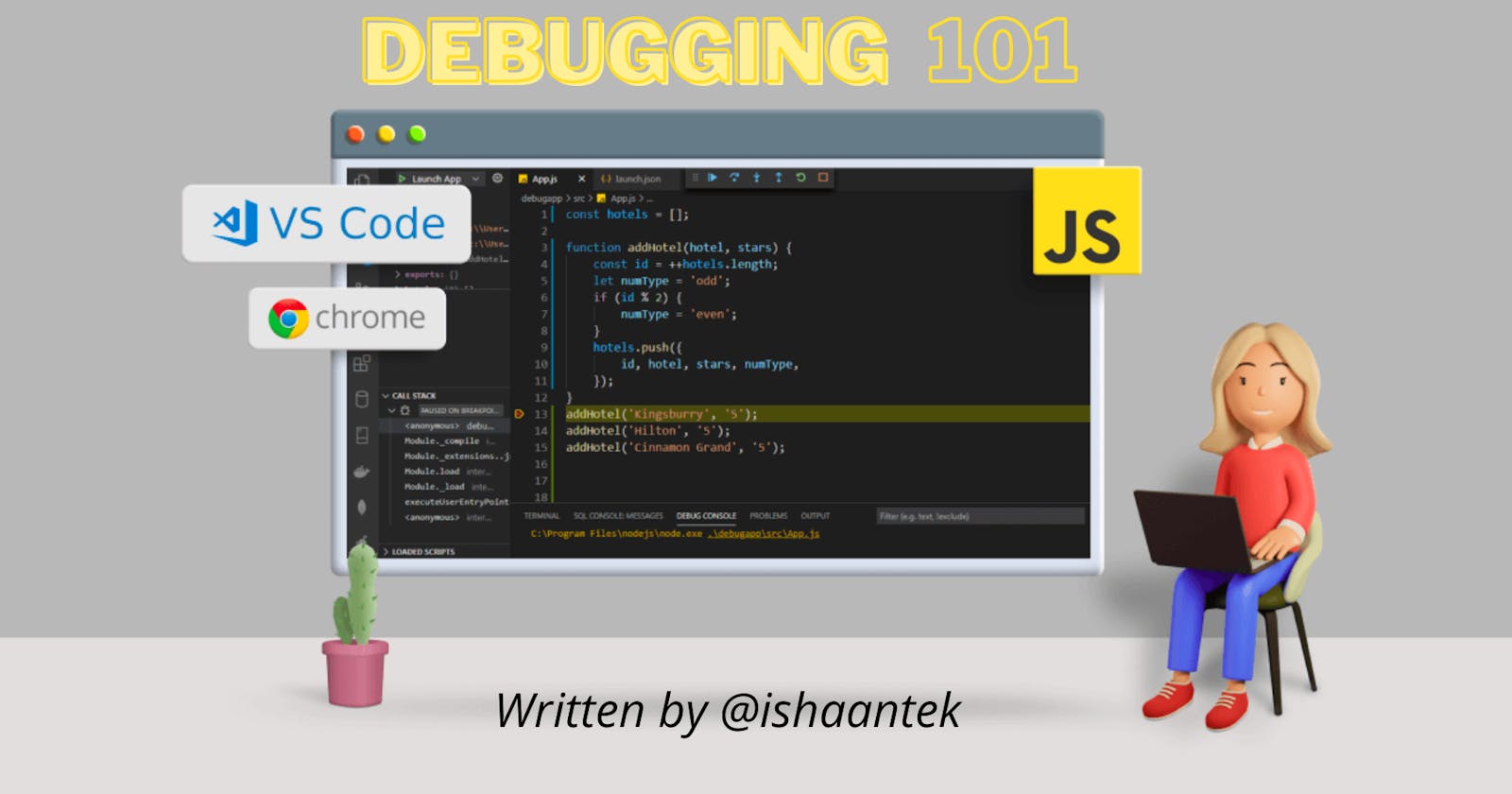Debugging is an essential part of the software development process. It can be frustrating, and time-consuming, but it is also an opportunity to improve your code and make it more robust. In this blog post, we will explore some common techniques and tools that can help make debugging a little less painful.
1. Print Statement
First, let's talk about the most basic debugging technique: using print statements. This is the simplest way to check the value of a variable or the flow of your program. Inserting print statements at key points in your code can help you identify where things are going wrong. For example, if you suspect a problem in a loop, you can print the value of the loop variable at the beginning and end of each iteration to see if it's behaving as expected.
2. Debuggers
Another technique is using a debugger. A debugger is a program that allows you to step through your code line by line, pause execution, and inspect variables. Most modern integrated development environments (IDEs) come with a built-in debugger, such as the one in Visual Studio Code, PyCharm, or IntelliJ. Debuggers are especially useful for identifying problems in large, complex codebases, as they allow you to set breakpoints, watch variables, and step through code.
3. Logging Library
A third technique is using a logging library. Logging libraries allow you to record information about your program's execution, such as error messages, variable values, and performance metrics. These logs can help identify problems that are not immediately obvious, such as memory leaks or performance bottlenecks. Some popular logging libraries include Python's logging module, Java's log4j, and C#'s log4net.
4. Profiler
Another common tool used in debugging is the use of a profiler. A profiler is a tool that helps you to understand how your code is performing, and where it's spending most of its time. Profilers can help you identify performance bottlenecks, such as slow functions or excessive memory usage. Some popular profilers include the Python profiler, Xdebug for PHP, and Visual Studio's built-in profiler.
5. Assertions
Another important technique for debugging is using assertions. Assertions are statements in your code that check if a certain condition is true and raise an exception if it is not. These can be useful in catching bugs early on, as they allow you to specify the expected behavior of your code and ensure that it is happening. For example, you might use an assertion to check that a variable is within a certain range or that a list is not empty.
6. Version Control
Another technique is using a version control system such as Git. Version control systems allow you to keep track of changes to your code over time and revert to previous versions if necessary. This can be especially useful when debugging, as you can easily revert to a known good version of your code and compare it to the current version to see what has changed. Additionally, many version control systems allow you to view the commit history and see who made specific changes, which can help identify the source of a problem.
7. Systematic Approach
Finally, it's important to have a systematic approach to debugging. This can help you to stay focused and avoid getting bogged down in minor details. One common approach is the "divide and conquer" method, where you break down a problem into smaller, more manageable pieces and tackle them one at a time. Another approach is the "scientific method", where you form a hypothesis about the problem, test it, and use the results to guide your next steps.
8. Have a Good Understanding
In addition to the techniques and tools mentioned above, it's also important to have a good understanding of the specific language and framework you are working with. This can help you to understand how the code is supposed to work and where potential issues may arise.
In conclusion, debugging is an essential part of the software development process. By using a combination of techniques such as print statements, assertions, version control, and a systematic approach, as well as tools like debuggers, logging libraries, and profilers, you can make debugging less painful and more effective. Remember, the key is to stay calm, be methodical, and always keep learning.

